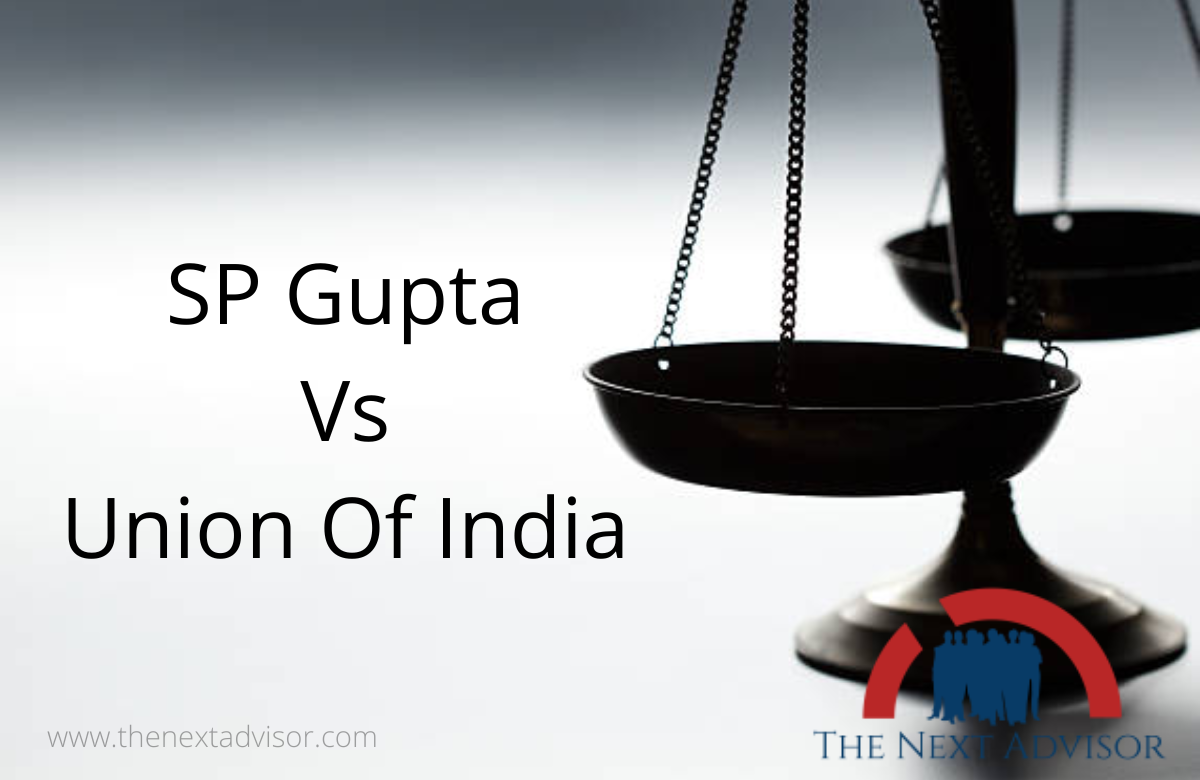SP Gupta Vs Union Of India Is the case of 1981. This case is related to the Independence of the Judiciary. So what were the facts of this case? In this particular case Supreme Court to come questions the principle of independence of the judiciary.
What is the basic structure of the Constitution of India? The question of law before the Honourable Court is One of the issues raised regarding the validity of the central government orders on the non-appointment of two judges and the disclosure of the correspondence between the Law Minister, the Chief Justice of Delhi, High Court and the Cheif Justice of India. What was held by the Honourable Apex Court?
The court held that there were two main grounds upon which the central Government’s decision regarding appointment and transfer could be challenged. The court reasoned that an open and effective participatory democracy required accountability and access to information by the public about the functioning of the government.
At the very outset, Court elaborated on the concept of independence of the judiciary saying: It is necessary to remind ourselves that the concept of independence of the judiciary is not limited only to the independence of executive perceive or influence but it is a much wider concept which texts within its sweep independence from many other pressures and prejudices. It has many dimensions mainly fearlessness of another part, economic or political freedom from prejudice acquired and nourished by class 2 to which the judges belong.
Article 124 and Article 217 of the Constitution of India deal with the appointment of judges to the Supreme Court and the various High Court. They were discussed at length by the court while deciding to have the final voice in the appointment of judges to the higher judiciary.
In SP Gupta Vs Union Of India, the court held that there were only two grounds on the basis of which the Central Government decision regarding appointment and transfer can be challenged.
1. When there was no full and effective consultation between the central government and the appropriate authorities.
2. The decision was based on irrelevant grounds.
Under these considerations, the Court has to decide whether disclosure of a particular document would be contrary to the public interest or not. In this particular case SP Gupta, it was held that correspondence in question was not protected since it dealt with the appointment and transfer of judges it was hell to be one of great importance to the public interest.
The Court recognized that a democratic society cannot keep the activities of the government hidden from the public in order to avoid accountability and criticism. Recognising a right to know which seems implicit in the Right to free speech and expression the court reasoned that where society has chosen to accept democracy as its freedom faith it is elementary that the citizens ought to know what their government is doing?
The court also defined open government as the right to know, which is implicit in the Right to Free Speech and expression under Article 19(1) of the Constitution. The Honourable Supreme Court of India identified the presumption of disclosure of information regarding the functioning of government must be the ruled and secrecy an exception justified only where the strikest requirement of public interest so demands.
The approach of the court must be to attenuate the area of secrecy as much as possible consistent, with the requirement of public interest. Bearing in mind all the time the disclosure also serves as an important aspect of public interest. This is all about the essence of the SP Gupta Vs Union Of India case in a nutshell.





















